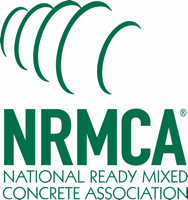Building codes and standards affect much of the ready mixed concrete construction in the United States. The purpose of any building code is to provide a safe building for all occupants, owners and emergency responders. Building codes are intended to provide a prescriptive requirement for building construction and are enforced at the local or state governmental level. Individual state and local governments are free to adopt their own codes; however, most adopt model building codes that are developed and maintained by the International Code Council (ICC). The ICC publishes the International Building Code (IBC, International Residential Code (IRC), International Energy Conservation Code, among others.
The model building codes reference several industry standards, many of which are relevant to the ready-mixed concrete industry. These standards provide requirements and guidance on various areas including but not limited to sustainability, fire safety, construction methods, and assembly installation.
Through participation on codes and standards committees and work with associated organizations, NRMCAʼs Codes and Standards programs helps to develop codes and standards that are most responsive to the issues affecting our industry. NRMCA professionals participate and engage in the following technical committees. The Associationʼs programs also are aimed at increasing the ready mixed concrete industryʼs awareness of the codes and standards development process.
For more information regarding codes and standards please contact Shamim Rashid-Sumar.
Codes Committee Participation
ASCE
- ASCE 7 – Minimum Design Loads and Associated Criteria for Buildings and Other Structures
ASHRAE
- 90.1 – Energy Standard for Buildings Except Low-Rise Residential Buildings
- 189.1 – Standard for the Design of High-Performance, Green Buildings Except Low-Rise Residential Buildings
ICC
- IBC International Building Code
- International Fire Code
- IRC International Residential Code
- IECC International Energy Conservation Code
- IWUIC International Wildland Urban Interface Code
- ICC600 Standard for Residential Construction in High-Wind Regions
- ICC 605 Standard Standard for Residential Construction in Regions with Wildfire Hazard
- IgCC International Green Construction Code (ASHRAE 189.1)
ISO
- TC92 Fire Safety
NFPA
- BLD-BLC Building Construction
- BLD-FIR/ SAF-FIRE Fire Protection Features
- BLD-RES/ SAF-RES Residential Occupancies
- BLD-SCM Structures, Construction, and Materials
- COD-AAA Construction and Demolition
- FIZ-AAA Fire Tests
- WFM-AAA Wildland Fire Management
- WRP-AAA Wildland and Rural Fire Protection
Research Reports
NRMCA’ Codes and Standards team manages a number of research projects and studies to support its advocacy efforts. The following includes current completed reports and summaries of these studies in progress.
- Investigation of Increased Rebar Spacing in Concrete Walls
- Earthquake Performance Comparison of Multifamily, Multistory Apartment Buildings Constructed of Various Materials
- The report Compilation of Acoustic Information for Concrete Construction and Other Materials includes details of acoustic performance for concrete floor-ceiling assemblies as well as for concrete walls such as pan joist, flat slab, ICF and concrete metal deck. The report also includes information on acoustic performance of other building materials and additional resources.
- Survey of Insurance Costs for Multifamily Buildings Constructed with Wood-frame and Concrete
Standards Committees Participation
Codes and Standards and other NRMCA staff represent the ready mixed concrete industry on committees and organizations that set standards impacting the industry. For a list of Standards committees with representation by NRMCA personnel, visit our Standards page.
State and Local Government Affairs
NRMCA encourages the adoption of statewide legislation that benefits the built environment to make it more durable, resilient, and sustainable. NRMCA can assist in the adoption of statewide or local legislation by providing example model language.
Sustainability
For information regarding this program and code activities, contact Tiffany Reed-Villarreal.
